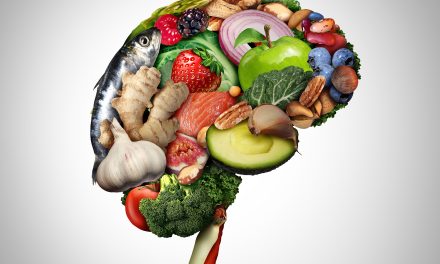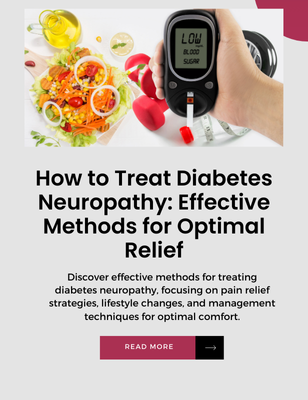Drinking alcohol is common in social settings, but it can sometimes lead to memory loss, especially during episodes of binge drinking. This can range from minor lapses to more serious blackouts, where large portions of time are forgotten.
To reduce the risk of memory impairment, it is important to moderate alcohol intake and focus on drinking responsibly.
Memory loss from alcohol can have lasting effects. Engaging in drinking habits that lead to frequent blackouts can hinder social and professional life. Recognizing harmful patterns and making informed choices about alcohol can help maintain cognitive health.
It’s not just about reducing alcohol consumption. Staying hydrated and eating a balanced meal before drinking can also aid in memory preservation.
In some studies, caffeine has shown potential in counteracting memory impairment, although more research is needed to fully understand its effectiveness.
Key Takeaways
- Responsible alcohol consumption reduces memory loss risk.
- Avoid binge drinking to prevent blackouts.
- Balanced meals and hydration support memory health.
Understanding Memory Loss and Alcohol
Alcohol consumption can significantly affect memory and brain function. It can lead to both short-term and long-term memory issues, primarily impacting the hippocampus, an area of the brain important for memory formation.
Effects of Alcohol on Brain Function
Alcohol can interfere with the way the brain functions. When consumed, it affects neurotransmitters, which are chemicals that help transmit signals in the brain. This interference can slow down brain activity and decrease the ability to process information.
One of the primary areas impacted by alcohol is the hippocampus. The hippocampus plays a crucial role in creating new memories. When alcohol affects this region, a person may find it hard to remember recent events.
Additionally, alcohol affects different types of memory. Short-term memory might be impacted more quickly, leading to temporary loss of recent events. Long-term memory, however, is more resilient but can still suffer with prolonged exposure to alcohol.
Connection Between Alcohol Use and Memory Impairment
The relationship between alcohol and memory is complex. Regular alcohol use can lead to significant memory impairment, sometimes causing blackouts. These blackouts are moments where the individual cannot recall events after drinking.
Studies show that alcohol can block the ability to form memories. During heavy drinking, the brain struggles to transfer information from short-term to long-term memory. This condition can either result in fragmented memories or complete loss of memory for certain periods.
Chronic alcohol consumption can exacerbate these issues, leading to more persistent memory problems. Over time, frequent alcohol use can also result in structural brain changes, contributing to long-term memory impairments.
Recognizing Risks and Patterns of Drinking
Recognizing drinking patterns involves understanding habits that increase the likelihood of memory problems. Heavy alcohol use and binge drinking are significant contributors, especially among college students, who are at high risk.
Identifying Binge Drinking and Heavy Alcohol Use
Binge drinking is consuming a large amount of alcohol in a short period. For men, this usually means five or more drinks within two hours; for women, it’s four or more drinks. This pattern is common among college students, who often see social events as opportunities to drink heavily.
Heavy alcohol use includes binge drinking on five or more days in a month. This increases the risk of developing health issues, including impaired memory. Recognizing these patterns and moderating intake can help reduce such risks.
Alcohol Use Disorder and Memory Problems
Alcohol Use Disorder (AUD) is a medical condition where drinking habits interfere with daily life. This disorder often leads to memory issues because alcohol can damage brain structures involved in memory.
Individuals who develop AUD often experience blackouts or lapses in memory as a result of excessive drinking. It’s crucial to identify the signs of AUD early. Seeking professional help can prevent further cognitive impairment and improve quality of life. Addressing AUD can assist in reducing memory problems linked to alcohol consumption.
Preventive Measures for Memory Preservation
Maintaining a sharp memory involves both making informed choices about alcohol consumption and adopting healthy lifestyle habits. Moderation, balanced nutrition, and regular exercise can play crucial roles in preserving cognitive function.
Role of Moderate Drinking and Abstinence
Moderate drinking may help in maintaining social bonds, which could have cognitive benefits. However, frequent or excessive consumption can lead to memory impairment. It is generally recommended that men and women aim for moderate drinking, defined as up to two and one alcoholic drink per day, respectively.
For those concerned about memory loss, abstaining from alcohol might be beneficial. Drinking patterns can impact cognitive health over time, and choosing to limit alcohol intake or avoid it altogether might improve memory and focus. Understanding individual tolerance levels is also key.
Influence of Lifestyle Choices on Memory
Daily habits significantly influence memory preservation. Regular exercise not only improves overall health but also promotes blood flow to the brain, potentially enhancing brain function. Activities such as walking, aerobics, and strength training can be beneficial.
A healthy diet rich in fruits, vegetables, and whole grains supports brain health. Essential nutrients like omega-3 fatty acids, antioxidants, and vitamins B, C, and E have protective effects on memory. Staying hydrated and limiting processed foods and sugars also matters.
Incorporating these habits creates a foundation for not just physical health but cognitive success as well.
Addressing Nutritional Aspects
Maintaining a balanced diet plays a crucial role in preventing memory loss, especially for those who consume alcohol. Proper nutrition helps support brain function and can mitigate some of the negative effects of alcohol on memory.
Thiamine Deficiency and Its Impact on Memory
Thiamine, also known as vitamin B1, is essential for brain health. A lack of thiamine can lead to serious conditions like Korsakoff syndrome and Wernicke-Korsakoff syndrome, which are linked to alcohol consumption. These conditions dramatically affect memory and cognitive function.
Alcohol can interfere with how the body absorbs thiamine. People who drink heavily might not get enough of this vitamin, leading to brain disorders. The symptoms often start with confusion, vision problems, and loss of muscle coordination.
Improving thiamine intake can be as simple as eating thiamine-rich foods like whole grains, nuts, and pork. In some cases, supplements might be necessary. It’s important for individuals, especially those consuming alcohol, to monitor their thiamine levels regularly with a healthcare provider’s guidance.
Effects of Comorbid Substance Use
Comorbid substance use can significantly impact cognitive functions. Different substances like cannabis, sedatives, and benzodiazepines affect memory and other brain activities, especially in individuals with existing mental health disorders.
Impact of Poly-Substance Use on Cognitive Functions
Combining various substances may worsen cognitive impairments. The Substance Abuse and Mental Health Services Administration (SAMHSA) reports that using multiple substances like THC found in cannabis and sedatives can lead to memory deficits and reduced attention spans.
Research indicates that such combinations can damage brain structures involved in memory processing. For example, the effects of alcohol abuse on thalamic structures have been linked to memory issues, and these effects can worsen when mixed with other drugs.
Benzodiazepines also contribute to this problem by interfering with how the brain encodes and retrieves memories. This results in temporary or even long-term memory loss, especially when they are taken along with other substances. Understanding these interactions is essential for reducing cognitive declines associated with substance abuse.
Consequences and Complications of Memory Loss
Memory loss from alcohol consumption can lead to both immediate and long-term health issues. Blackouts may occur, leading to gaps in memory that affect daily life. Persistent alcohol use is linked to dementia and cognitive decline, which can further impact mental health.
Understanding Blackouts and Their Long-term Effects
Alcohol-induced blackouts cause people to forget events that happened while intoxicated. These memory lapses are the result of alcohol interfering with brain functions, specifically affecting how memories are stored. Blackouts can be partial or complete, with those experiencing them unable to recall events that unfolded during the drinking period.
In the long term, frequent blackouts can harm relationships and career paths. Individuals may find themselves in risky situations without any recollection, leading to potential legal or personal issues. Furthermore, repeated occurrences may signal deeper cognitive impairments that need medical attention.
Mental Health, Dementia, and Cognitive Decline
Chronic alcohol use is a risk factor for mental health issues and cognitive decline. Regular consumption over time can lead to alcohol-related dementia, which significantly impacts a person’s cognitive functions, such as decision-making and problem-solving.
Excessive alcohol use can contribute to anxiety and depression, further complicating a person’s mental health. These mental health challenges, combined with declining cognitive abilities, can severely alter a person’s quality of life and independence. It’s crucial to recognize these risks and address them early to prevent long-term damage.
Exploring Treatment and Recovery Options
Addressing alcohol addiction and preventing memory loss involves exploring various treatment and recovery strategies. These approaches focus on both overcoming addiction and protecting brain health.
Approaches to Addiction Treatment
Several options exist for treating alcohol addiction, each important for recovery. Behavioral therapies like cognitive-behavioral therapy help individuals change drinking behaviors. Medication-assisted treatment uses drugs such as disulfiram or naltrexone to reduce cravings.
Inpatient and outpatient rehabilitation programs provide structured environments for detoxification and therapy. Inpatient programs offer intensive care, while outpatient programs provide more flexibility. Both approaches aim to support recovery through education and group sessions. Family therapy can also be beneficial, involving loved ones in the recovery journey.
Nutritional support is crucial as well. Supplements can address deficiencies like those seen in Wernicke encephalopathy, a condition resulting from chronic alcohol abuse.
Supporting Recovery and Preventing Relapse
Supporting recovery involves a continued focus on health and relapse prevention. Peer support groups such as Alcoholics Anonymous provide community support and accountability. These groups help individuals share experiences and strategies for staying sober.
Continued counseling ensures ongoing psychological support. Learning stress management techniques helps individuals handle triggers for alcohol use. Strategies include exercise, meditation, and hobby development.
Preventing memory loss also means avoiding high-risk situations and maintaining a healthy lifestyle. Regular medical check-ups help monitor recovery progress and address emerging health issues. Healthy habits, including a balanced diet and proper hydration, promote overall brain health.
Recovery is an ongoing process that requires commitment and support from various resources.
Legal and Societal Implications
Efforts to prevent memory loss when drinking carry significant legal and societal implications. Policies play a crucial role in shaping behaviors around alcohol misuse. By examining policies and societal commitments, we can understand how these factors contribute to preventing alcohol-related memory loss.
Understanding the Role of Policy in Alcohol Misuse
Policies aimed at reducing alcohol misuse have a significant impact on consumption patterns and related health outcomes. The Substance Abuse and Mental Health Services Administration promotes laws and regulations to reduce underage drinking and improve public health. Increasing the legal drinking age and enforcing strict penalties for violations can be effective in altering consumption behaviors, especially among young people.
The Centers for Disease Control and Prevention emphasizes community-level interventions, promoting social norms that discourage excessive drinking. Educational programs and community events can shift public perceptions and reduce alcohol abuse. Such initiatives often target high-risk groups, like college students, where memory loss incidents from alcohol are more common, as noted in certain studies.
Frequently Asked Questions
Memory loss related to alcohol consumption is a concern for many. There are several strategies available to reduce risks and address memory issues, including lifestyle changes and dietary adjustments.
What strategies can reduce the risk of memory loss due to alcohol consumption?
Limiting alcohol intake is crucial. Setting personal limits before drinking and pacing alcohol consumption can help. Staying hydrated and eating before drinking also aids in reducing potential memory loss.
How does one address memory loss after episodes of heavy drinking?
Rest is important. Giving the brain time to recover from heavy drinking can aid in clarity. Engaging in memory exercises and puzzles helps stimulate brain function, aiding recovery.
Are there specific steps to prevent blackouts while drinking?
Monitoring the type and amount of alcohol consumed is key. Alternating alcoholic drinks with water can help keep one hydrated and reduce the risk of blackouts. Avoiding environments that encourage excessive drinking is also beneficial.
Can dietary or lifestyle changes help mitigate alcohol-induced memory loss?
Yes, a diet rich in omega-3 fatty acids, antioxidants, and vitamins like B12 can support brain health.
Regular physical exercise improves blood flow to the brain, helping combat memory loss.
What are effective ways to improve memory in individuals who have experienced alcohol-related memory decline?
Mental exercises like puzzles and reading can enhance memory retention.
Social engagement and learning new skills also stimulate cognitive function, aiding memory improvement.
In what ways can the elderly counteract memory issues related to alcohol use?
The elderly should seek regular medical advice to manage alcohol intake.
Mental stimulation through hobbies, alongside a balanced diet and regular exercise, can help preserve memory function.

















